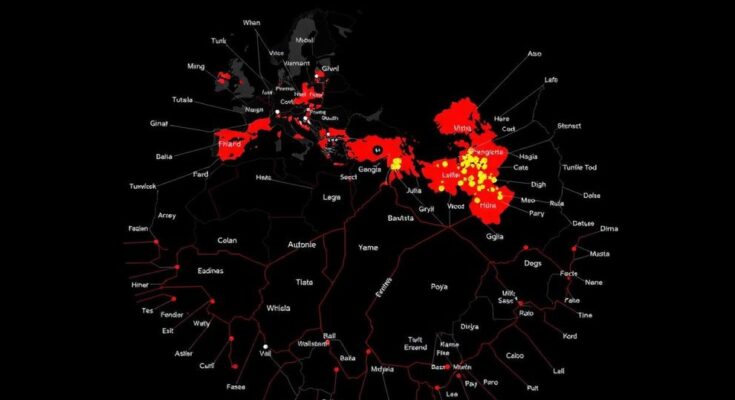The 2012 Benghazi attacks marked a significant incident in U.S. diplomatic history, with assaults on a U.S. compound resulting in the deaths of four Americans, including Ambassador John Stevens. The attacks were executed by militants associated with al-Qaeda amidst the unstable context of the Libyan uprising. Following the event, political turmoil ensued in the U.S., prompting extensive investigations and reforms led by Secretary of State Hillary Clinton to address security failures.
On September 11–12, 2012, the U.S. diplomatic compound in Benghazi, Libya, faced assaults led by approximately 150 Islamic militants affiliated with al-Qaeda. The attacks resulted in the deaths of four Americans, including John Christopher Stevens, the U.S. ambassador to Libya, marking the first violent death of a U.S. ambassador since 1988. Stevens had previously been engaged in outreach efforts with Libyan rebels amidst the ongoing Libyan uprising that began in February 2011. On the night of the attacks, Stevens and others sought refuge in a safe room, but rescue efforts were hindered by heavy smoke, leading to tragic casualties. The subsequent assaults included a mortar attack on a nearby CIA compound, resulting in two additional deaths among security personnel. The aftermath of the attacks saw significant political fallout within the United States, igniting intense scrutiny of the Obama administration’s response and accountability. Various investigations highlighted systemic failures in security and response measures, with Secretary of State Hillary Clinton later taking responsibility for these shortcomings. The controversy surrounding the incident was compounded by divergent narratives on the nature of the events, with initial claims of protest-related motivations being contradicted by later evidence suggesting premeditated attacks. The final investigative report was not released until the summer of 2016, following extensive congressional inquiries and public discourse on the attacks.
The 2012 Benghazi attacks occurred against the backdrop of the Libyan Revolt of 2011, which had seen the ousting of long-time leader Muammar Gaddafi. Following the governmental upheaval, the security situation in Libya became increasingly unstable, leading to a rise in militant activity, particularly from groups like Ansar al-Sharia. The attacks took place on the eleventh anniversary of the September 11 terrorist attacks in the United States, adding to the significance of the date. The incident also unfolded during a politically charged period in the U.S. due to the impending presidential election, raising questions about foreign policy and national security while prompting rigorous investigations into the events surrounding the attacks.
The 2012 Benghazi attacks represented a pivotal moment in U.S. foreign policy, revealing significant vulnerabilities in diplomatic security and response mechanisms. The tragic loss of four Americans, including an ambassador, catalyzed a series of investigations and reforms within the State Department. The complexity surrounding the motivations for the attacks and the subsequent political ramifications continue to resonate in discussions about terrorism, national security, and U.S. engagement in volatile regions. The event remains a critical reference point in evaluating America’s diplomatic strategies and its reevaluation of security measures in dangerous environments.
Original Source: www.britannica.com




